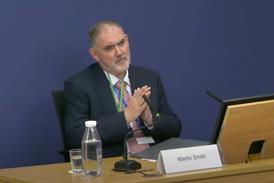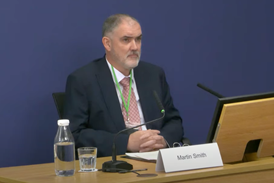Those contemplating bringing a private prosecution have two options when seeking to compel information from third parties: seeking the assistance of investigative authorities like the police, or attempting to use tools available in the civil courts, in particular Norwich Pharmacal orders (NPOs), to obtain evidence themselves.

However, the Commercial Court’s recent decision in Burford Capital Ltd v London Stock Exchange Group Plc suggests that it may become increasingly difficult for prospective private prosecutors to obtain NPOs where the authorities have not been approached, or have been approached and have taken a negative view of the case, despite the fact that the courts continue to uphold the principle that approaching the authorities is not necessary before the institution of private prosecutions. The direction taken by the Commercial Court is not desirable, and the courts should instead judge attempts to obtain redress for victims of crime on their own merits.
Burford and NPOs
Burford applied for an NPO requiring the London Stock Exchange (LSE) to disclose information to demonstrate alleged unlawful market manipulation. Before applying for the NPO, Burford had complained to both the LSE and the Financial Conduct Authority (FCA), which had conducted their own investigations and concluded that the evidence (including information not available to Burford) did not support the allegations. Unsatisfied, Burford applied to the court for an NPO so that it might pursue claims in tort; bring a private prosecution; persuade the FCA and/or Crown Prosecution Service to prosecute; and/or seek to persuade the FCA to reconsider taking no further action.
The judge refused the application on the basis that no arguable case was made out. However, he then went on to analyse the factors that would have been weighed had one been made out, particularly considering the interplay between the NPO jurisdiction and alleged criminal misconduct.
He concluded that where NPO relief was sought to facilitate a criminal prosecution (or regulatory action), this would impact on whether the exercise of the relief was necessary in the interests of justice. He
gave an example of a victim of a phone scam who had reported the suspected crime to the police; there, the police would have the full range of investigatory powers available. In such circumstances, the judge made obiter comments that an application for an NPO by that victim against the phone company for information identifying the scammers would, if not sought for the purpose of a civil fraud claim but rather for a criminal investigation or prosecution, require ‘exceptional justification founded upon specific features of the particular facts, for which no obvious “for instance” springs to mind’.
He surmised that it would be ‘unacceptable’ for an NPO application to be used in a case where a victim considered the official investigation to be flawed, as this is more rightly the purview of a public law remedy. In a case where the authority had taken a properly considered decision not to prosecute, it would not be in the interests of justice to grant an NPO because any private prosecution would be likely to be taken over and discontinued by the director of public prosecutions.

Victims of crime
In 2019, the Administrative Court in R(IF) v Crown Court at Gloucester had to consider what effect a private prosecutor’s decision not to report alleged criminality to the police had on a subsequent application for costs from central funds. Noting the established principle that there is no requirement for a private prosecutor to report the matter to the police before applying for a summons, the judge held that there was no reason why the same principle should not apply to applications for costs, and ruled that the Crown court had been wrong to rely on this factor when ruling against the private prosecutor in this case.
Despite this newly reinforced principle, the judge’s comments in Burford place victims of crime in a difficult position: if they do not report the crime to the authorities then they may be denied NPO relief for failing to seek that remedy first, but if they do report and the authorities decide not to proceed, they may be barred from obtaining NPO relief as a result of the view taken by the authorities. Is this fair on victims? As a matter of general principle, any attempt by a victim of crime to seek legitimate redress in good faith through the courts should at least be treated on its own merits.
The comments in Burford are of particular concern in the context of economic crime. Most public authorities are (unlike the FCA) publicly funded and, due to budgetary restraints, their capacity to investigate or prosecute financial crime is limited. Negative outcomes in investigations are often the result of these constraints, rather than the absence of a viable complaint. Privately funded investigations and private prosecutions offer an alternative that can help bridge the gap. Properly brought, they enable victims to seek justice, facilitate the pursuit of perpetrators of crime and can have a deterrent effect. In D Ltd v A, the court itself noted the importance of private prosecutions in cases of complex fraud where ‘in reality, the public authorities sometimes may lack the resources and/or inclination to commence a public prosecution’. Similarly, private prosecutions are often brought in circumstances where an investigating agency has reviewed the evidence and declined to bring a prosecution, and there are examples where such cases have resulted in convictions and lengthy sentences.
It is undesirable for courts to restrict the availability of NPOs in the context of private prosecutions as suggested in Bu rford. NPOs should be granted or refused based on the facts of each case, not on the opinions of the authorities who have assessed the case previously. Above all, the courts should take care not to dissuade victims from trying to obtain redress through other means if the authorities cannot or will not assist.
Hannah Laming is a partner and Peter FitzGerald of counsel at Peters & Peters

























No comments yet